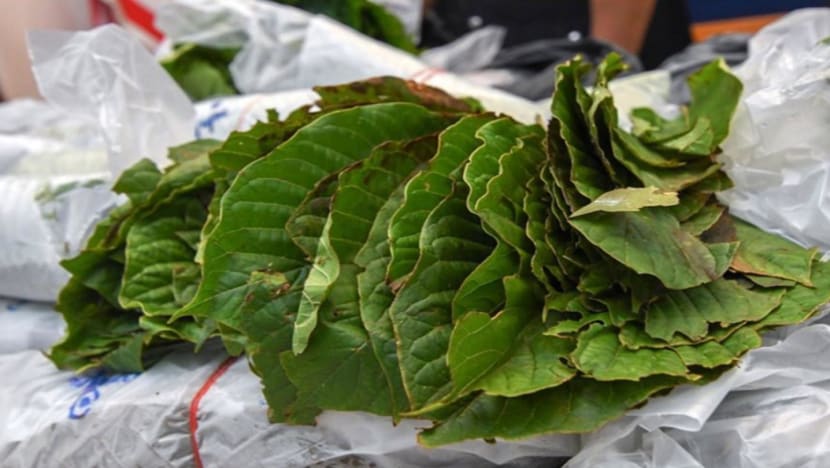Amend the laws before allowing hemp, ketum cultivation in Malaysia: Anti-narcotics chief

The Malaysian Cabinet has given the green light to the growing of hemp and ketum for medical purposes. (Photo: Bernama)
KUALA LUMPUR: Relevant Acts and procedures under the Malaysian law have to be amended if the government wants to allow the cultivation of ketum and hemp in the country, said Director of Narcotics Crime Investigation Department Ayob Khan Mydin Pitchay.
Among the amendments that needed to be made involved the Poisons Act 1952 and the National Land Code 1965, said Mr Ayob Khan at a press conference at the Bukit Aman police headquarters on Monday (Apr 25).
Bernama reported Mr Ayob Khan as saying that the Poisons Act 1952 has to be amended because ketum contains psycho-active substances that could be sedative and euphoric.
According to medical experts, ketum is a plant that has stimulant and opioid properties, similar to illegal and addictive substances.
“At present, the planting of ketum is not an offence but when it is picked, processed, sold and exported then it becomes an offence,” said Mr Ayob Khan.
The National Land Code 1965 should also be amended because the power to manage land is under the State List in the Federal Constitution, he added. The state governments have legislative power over subjects under the State List.
“We will abide by any decision the government makes but many procedures and processes need to be followed,” Mr Ayob Khan was quoted as saying.
He also said that tests on the effects of ketum use have only been done on animals at the preclinical stage only, adding that clinical trials have not been done on humans to identify its side effects.
“Many types of research need to be done. For example, there are talks that the planting of ketum can generate RM180 million (US$41 million) a year,” he said.
“However, other costs need to be looked at. For instance, presently we have about 130,000 addicts and 25 per cent of them (36,000) are placed at the Voluntary Narcotics Addiction Rehabilitation Centre (Puspen),” he added.
Mr Ayob Khan said that the National Anti-Drug Agency did not have a special rehabilitation programme for ketum abuse.
On Sunday, Deputy Communications and Multimedia Minister Zahidi Zainul Abidin was reported as saying that the Cabinet has given its go-ahead for discussions to be held with Health Minister Khairy Jamaluddin on the planting and use of hemp and ketum for medicinal purposes.
Malaysian daily Sinar Harian quoted Mr Zahidi as saying that the green light from the Cabinet is with regard to the consumption of hemp and ketum for medicinal purposes only and not for their general use.
He also said that the global demand for ketum and hemp is very high with three countries currently being their major producers.
Indonesia is believed to be the biggest producer of ketum, providing about 90 per cent of global supply.
Mr Zahidi said if Malaysia could become the fourth largest producer in the world, it could gain a substantial revenue from hemp and ketum.
“An acre (0.41 hectar) of hemp could yield RM3,000 and for 10 acres, the revenue generated could reach RM30,000,” noted Mr Zahidi.
Related:
CABINET DECISION CAME AFTER PARLIAMENTARY CAUCUS MET PM
Last Thursday, the bi-partisan parliamentary caucus said that Prime Minister Ismail Sabri Yaakob was in the process of reviewing the previous Pakatan Harapan (PH) government’s decision on allowing alternative treatments which include the use of ketum and medical marijuana.
One of the caucus members, Shah Alam MP Khalid Abdul Samad, said they were told of the review during their official meeting with Mr Ismail Sabri on Apr 12, reported Malaysiakini.
Mr Khalid said that the prime minister had responded positively in the meeting and gave his promise to discuss and fine-tune the relevant issues more thoroughly in the Cabinet.
According to the PH MP, the caucus chaired by former youth and sports minister Syed Saddiq Syed Abdul Rahman also discussed with Mr Ismail Sabri about policy issues related to the hemp, ketum and medical marijuana industry for use in Malaysia.
They also raised issues related to Malaysians charged and convicted by the courts for using marijuana for medical purposes.














